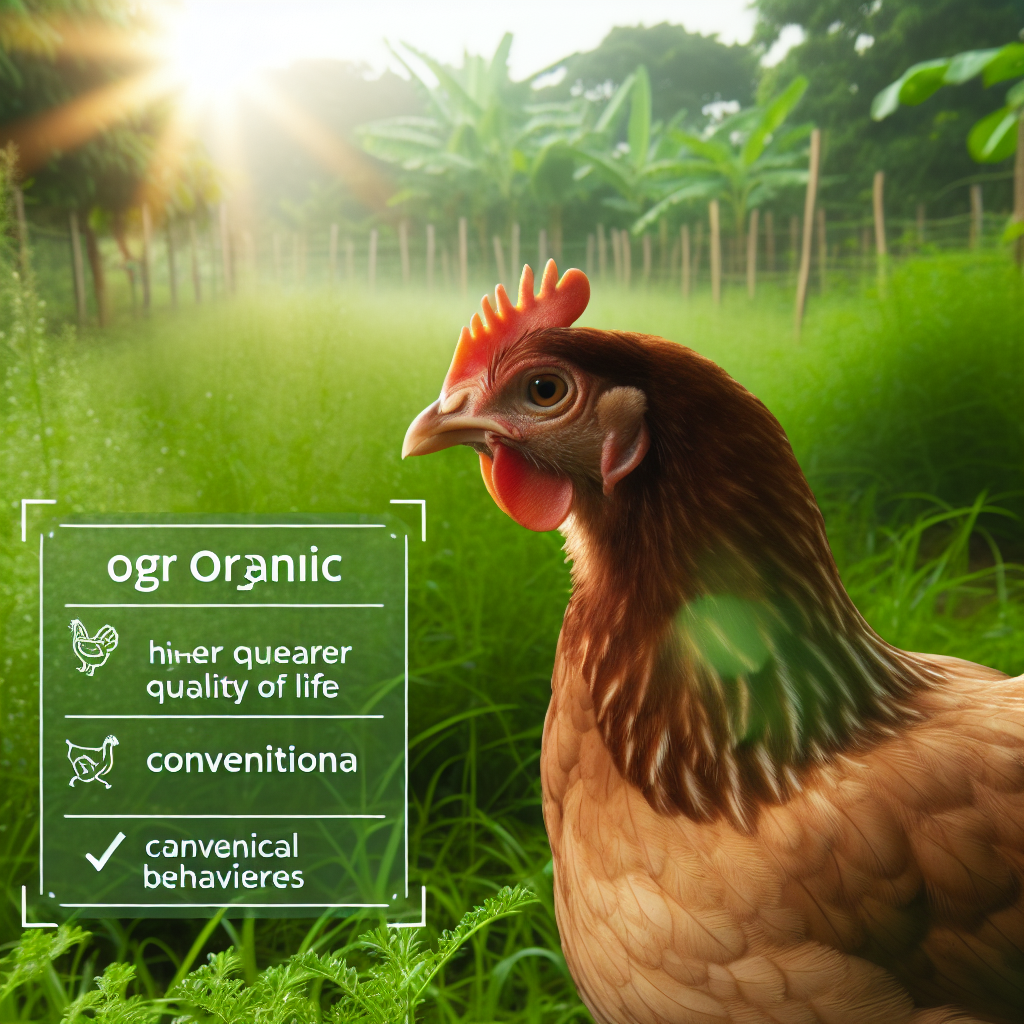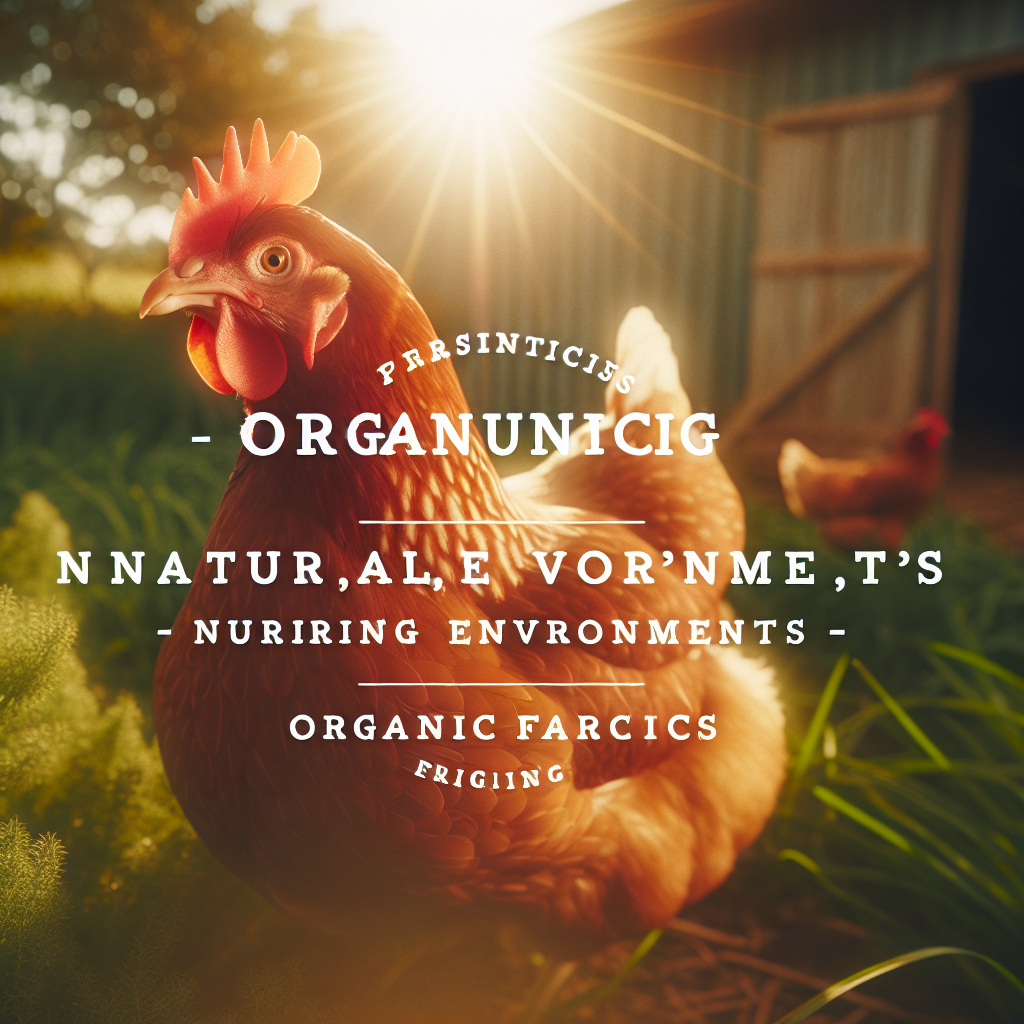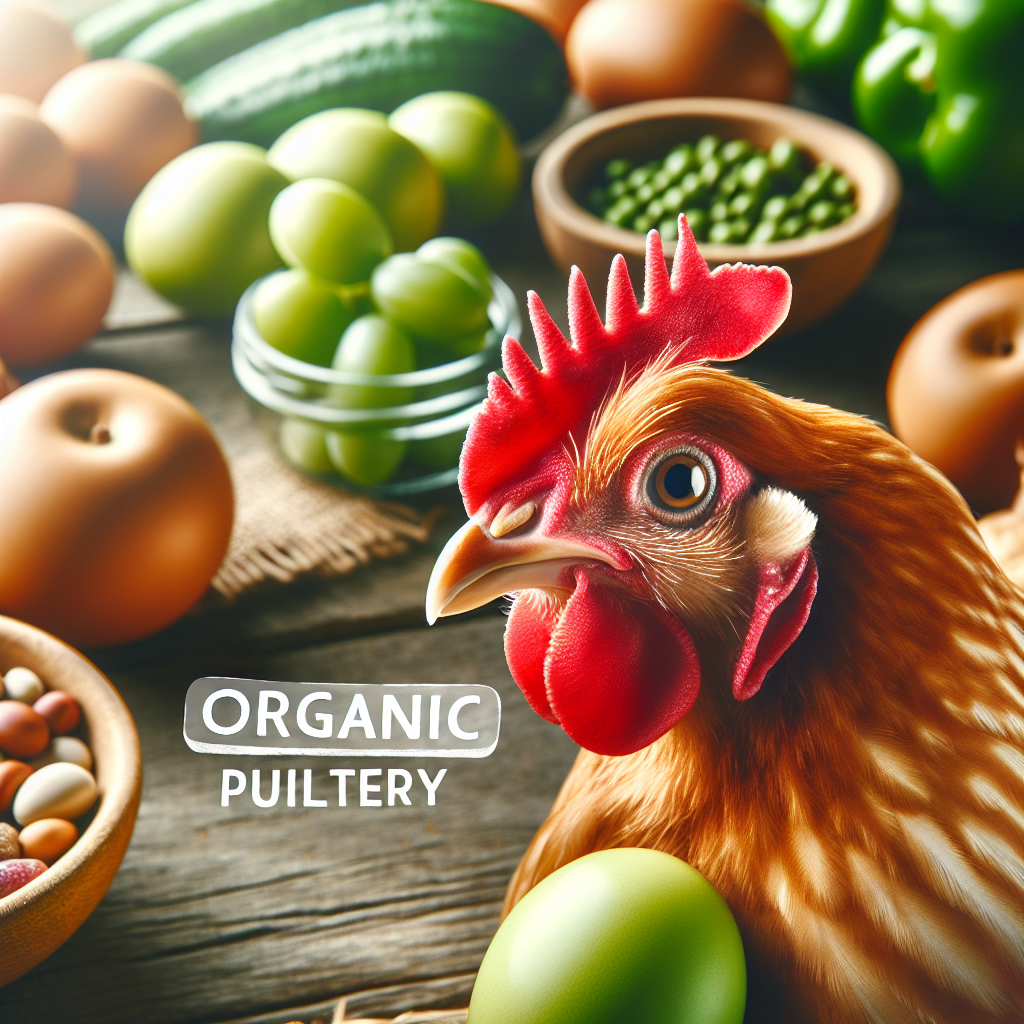If you’ve ever wondered about the advantages of organic chicken farming, look no further. This article explores the primary benefits of adopting organic practices in the chicken farming industry. From the health benefits of consuming organically raised chickens to the positive impacts on the environment, this article will shed light on why more and more farmers are embracing organic methods for their poultry. So, whether you’re a farmer considering making the switch or a consumer curious about the benefits of organic chicken, read on to discover the incredible advantages of this sustainable farming approach.
Higher quality and safer chicken meat
When you choose organically fed and antibiotic-free chickens, you are not only prioritizing the quality of the chicken meat you consume but also ensuring safer food for you and your family. Organic chicken farming practices involve using organic feed that is free from synthetic pesticides, herbicides, and genetically modified organisms (GMOs). This means that the chickens are consuming a diet that is free from harmful chemicals, resulting in healthier and higher quality meat.
Additionally, organic chicken farming practices prohibit the use of antibiotics as growth promoters or to compensate for poor living conditions. This means that the chickens are not exposed to potentially harmful antibiotics, and the risk of antibiotic resistance is significantly reduced. By choosing organic chickens, you can rest assured that you are consuming meat that is free from antibiotics and promoting better overall health.
Sustainable and environmentally-friendly practices
By opting for organic chicken farming practices, you are actively contributing to a more sustainable and environmentally-friendly food system. Organic farming methods prioritize the reduction of chemical inputs, which helps minimize water pollution and soil contamination. This reduction in chemical usage not only benefits the environment but also promotes healthier ecosystems and preserves biodiversity.
Additionally, organic chicken farming practices play a crucial role in preserving wildlife habitats. By using organic feed and avoiding the use of harmful chemicals, these practices help protect pollinators and beneficial insects, which are essential for maintaining ecosystem balance. By supporting organic chicken farming, you are indirectly contributing to the conservation of wildlife and the preservation of natural habitats.
Furthermore, organic chicken farming practices lead to decreased greenhouse gas emissions. Synthetic fertilizers, commonly used in conventional farming methods, contribute significantly to greenhouse gas emissions. By minimizing the use of these fertilizers in organic farming, carbon dioxide emissions are reduced, contributing to the fight against climate change.
Improved animal welfare and ethical considerations
If you prioritize animal welfare and ethical considerations, then organic chicken farming practices are the way to go. Organic farming standards require that chickens have access to outdoor spaces and the opportunity to engage in natural behaviors such as foraging and dust bathing. This ensures that the chickens have a higher quality of life and can express their natural instincts freely.
By providing outdoor access and a more natural environment, organic chicken farming reduces stress and improves the overall health and well-being of the chickens. They have the opportunity to exercise, socialize, and engage in natural behaviors, leading to healthier, happier chickens.
In addition to the direct benefits to the chickens’ welfare, supporting organic chicken farming practices also aligns with the values of supporting humane treatment of animals. By choosing organic chickens, you are actively contributing to improving the treatment of animals in the food production system, promoting a more compassionate and ethical approach to farming.
Nutritional benefits for consumers
Opting for organic chicken meat not only benefits the environment and animal welfare but also provides significant nutritional benefits for you as a consumer. Organic chicken meat has been found to have higher levels of omega-3 fatty acids compared to conventionally raised chicken. Omega-3 fatty acids are essential for brain health, heart health, and reducing inflammation in the body. By consuming organic chicken meat, you are increasing your intake of these beneficial nutrients.
Furthermore, organic chicken meat has been found to have enhanced nutritional value and taste. This can be attributed to the organic chickens consuming a diet that is higher in essential nutrients and lacking the harmful chemicals present in conventional chicken feed. The result is meat that is not only more nutritious but also more flavorful and enjoyable.
Another important benefit of choosing organic chicken meat is the lower risk of pesticide exposure. Conventional farming methods often involve the use of synthetic pesticides, which can leave residues in the meat. By choosing organic chicken meat, you can significantly reduce your exposure to these potentially harmful chemicals.
Support for local economies and communities
Supporting organic chicken farming practices goes beyond the individual benefits it provides. By choosing organic chicken, you are actively promoting and supporting local economies and communities. Organic farming often involves small-scale farms that prioritize sustainable and environmentally-friendly practices. These farms contribute to the local economy by creating jobs and providing economic opportunities within the community.
Furthermore, organic farming practices help preserve rural landscapes and cultural heritage. Many organic farms are located in rural areas, and their commitment to sustainable practices contributes to the preservation of the natural beauty and cultural identity of these regions. By choosing organic chicken, you are indirectly supporting the preservation of rural landscapes and the traditions and heritage associated with them.
Positive impact on human health
The benefits of organic chicken farming practices extend beyond the direct impact on the chickens and the environment. Choosing organic chicken meat can have a positive impact on human health as well. Organic farming practices reduce the use of antibiotics, which helps combat antibiotic resistance—a significant public health concern. By reducing our exposure to antibiotics through our food, we can contribute to the overall effort to address this global issue.
Additionally, organic chicken meat has been associated with a lower risk of allergies and respiratory problems. This can be attributed to the absence of synthetic pesticides and the higher quality of the meat produced through organic farming practices. By choosing organic chicken, you can potentially reduce the risk of allergic reactions and respiratory issues, promoting better overall health.
Supporting sustainable and healthy food choices is another important aspect of choosing organic chicken. By prioritizing organic farming practices, you are supporting a food system that is environmentally-friendly, promotes animal welfare, and prioritizes the nutritional quality of the food produced. This not only benefits you as an individual but also contributes to the overall health and well-being of society.
Increased consumer trust and transparency
One notable benefit of choosing organic chicken is the increased consumer trust and transparency that comes with it. Organic chicken products are required to meet specific standards and undergo certification processes. This ensures that the products labeled as organic are produced according to strict guidelines and adhere to organic farming practices.
Clear labeling and traceability of organic chicken products provide consumers with the necessary information to make informed choices. By knowing that the chicken meat they are purchasing is organic, consumers can have greater confidence in the farming practices used. This transparency helps build trust between consumers and organic farmers, fostering a mutually beneficial relationship.
Furthermore, the clear identification of responsibly sourced chicken products allows individuals who prioritize organic and sustainable choices to easily find and support those producers. By promoting responsible sourcing and providing clear information, the organic chicken industry encourages consumer participation in creating a more sustainable food system.
Reduced environmental impact
Choosing organic chicken has a significant positive impact on the environment. Organic farming practices prioritize the conservation of natural resources, such as water and soil. By reducing chemical inputs and using organic fertilizers, soil degradation and erosion are mitigated, preserving land productivity in the long term. This ensures that the land can continue to support food production for generations to come.
Additionally, organic farming practices decrease the energy consumption associated with farming operations. Conventional farming often relies heavily on synthetic fertilizers and machinery, both of which require significant energy inputs. By minimizing the use of synthetic fertilizers and adopting more energy-efficient farming methods, organic farming contributes to lower energy consumption and a reduced carbon footprint.
Support for biodiversity
Supporting organic chicken farming practices plays a vital role in preserving biodiversity. Organic farming methods prioritize the elimination of synthetic pesticides, reducing their harmful effects on insects and other organisms. This supports the preservation of native plant species and ecosystems by providing a safer environment for them to thrive in.
Furthermore, organic farming practices contribute to the protection of pollinators and beneficial insects. Bees, butterflies, and other pollinators play a crucial role in maintaining the health and diversity of ecosystems. By avoiding the use of synthetic pesticides, organic farming practices create a safe haven for these essential creatures to carry out their important work.
Additionally, organic farming reduces the reliance on monoculture practices, which can negatively impact biodiversity. By promoting a more diverse and sustainable approach to farming, organic chicken farming supports a healthier and more balanced ecosystem.
Long-term sustainability and resilience
Another significant benefit of organic chicken farming practices is the long-term sustainability and resilience they promote. By prioritizing organic farming, farmers can enhance soil fertility and maintain long-term land productivity. Organic farming methods focus on building healthy soil through the use of organic fertilizers, crop rotation, and cover cropping. This leads to improved soil structure, increased water-holding capacity, and enhanced nutrient availability, resulting in more sustainable agricultural systems.
Moreover, organic farming practices promote climate change adaptation and resilience to extreme weather events. By maintaining healthy soil and diverse crop rotations, organic farmers can better withstand the impacts of climate change, such as droughts and heavy rains. This resilience contributes to the long-term viability and stability of the agricultural sector, ensuring food security for future generations.
When you choose organic chicken, you are not only making a choice that benefits you and your family but also supporting a more sustainable and ethical food system. From higher quality and safer chicken meat to improved animal welfare, nutritional benefits, and reduced environmental impact, the advantages of organic chicken farming practices are significant. By actively choosing organic chicken, you can have a positive impact on your health, the environment, local communities, and the overall resilience of our food systems. So, next time you’re at the grocery store, consider reaching for that package of organically raised chicken and make a difference in your own life and the world around you.




